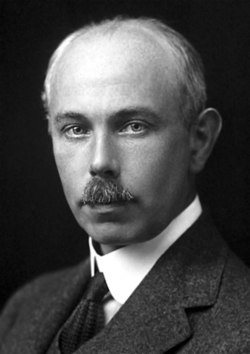Francis William Aston Quote
Should the research worker of the future discover some means of releasing this [atomic] energy in a form which could be employed, the human race will have at its command powers beyond the dream of scientific fiction, but the remotest possibility must always be considered that the energy once liberated will be completely uncontrollable and by its intense violence detonate all neighbouring substances. In this event, the whole of the hydrogen on earth might be transformed at once and the success of the experiment published at large to the universe as a new star.
Francis William Aston
Should the research worker of the future discover some means of releasing this [atomic] energy in a form which could be employed, the human race will have at its command powers beyond the dream of scientific fiction, but the remotest possibility must always be considered that the energy once liberated will be completely uncontrollable and by its intense violence detonate all neighbouring substances. In this event, the whole of the hydrogen on earth might be transformed at once and the success of the experiment published at large to the universe as a new star.
Tags:
atom, atomic bomb, atomic power, catastrophe, destruction, earth, energy, experiment, explosion, humanity
Related Quotes
The global population of Earth are involved in the following corporate government experiments: The long term effects of - 1. Nuclear bomb fallout radiation. 2. Man-made wireless radio frequency (RF) r...
Steven Magee
Tags:
abnormally, adaptation, aircraft, airplanes, atmosphere, atom, bodies, bomb, chemical, chemtrails
The void is 'not-being,' and no part of 'what is' is a 'not-being,'; for what 'is' in the strict sense of the term is an absolute plenum. This plenum, however, is not 'one': on the contrary, it is a '...
Aristotle
Tags:
aristotle, atom, atomic, atomic science, atoms, democritus, science, science scientists, scientists
About Francis William Aston
Francis William Aston FRS (1 September 1877 – 20 November 1945) was a British chemist and physicist who won the 1922 Nobel Prize in Chemistry for his discovery, by means of his mass spectrograph, of isotopes in many non-radioactive elements and for his enunciation of the whole number rule. He was a fellow of the Royal Society and Fellow of Trinity College, Cambridge.
